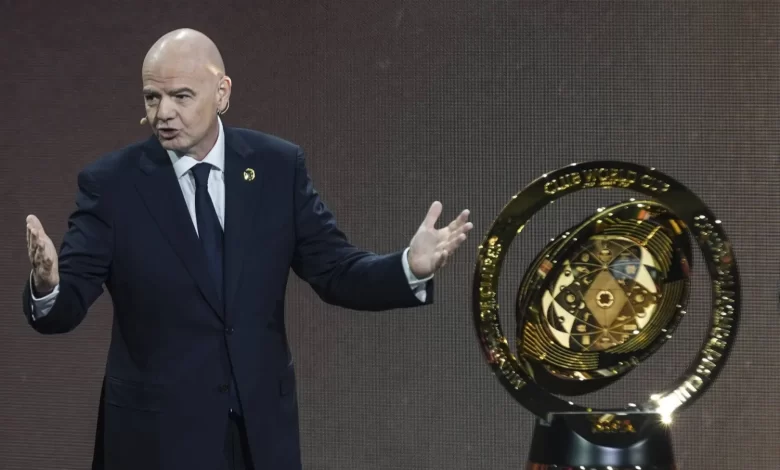Sport
FIFA Adopts “Temporary Framework” Regarding Transfers

The International Football Federation (FIFA) adopted a “temporary framework” on Monday regarding its player transfer rules, following a decision from the European Court of Justice, just one week before the start of the winter transfer window in early January.
FIFA stated in a press release that, “after a series of fruitful consultations with key football stakeholders regarding the transfer system and possible amendments to Article 17 of the regulations on the status and transfer of players, the Council Office adopted a temporary regulatory framework concerning the regulations on player status and transfers, as well as procedural rules governing the Football Court.”
The statement further explained, “The temporary regulatory framework addresses rules related to compensation for contract violations, joint and multiple liabilities… international transfer certificates, and procedures before the Football Court, aiming for clarity and stability before upcoming registration periods and adherence to internationally recognized unified rules.”
FIFA sees it as its responsibility to provide the greatest possible stability and clarity in the current circumstances, based on its mission to manage global football affairs.
In mid-October, FIFA launched a “comprehensive dialogue” to review part of its global player transfer system, after the European Court of Justice deemed some of its rules in conflict with European Union law.
This step followed the European Court of Justice’s decision in the “Diarra Case.”
The Court of Justice of the European Union found that some of FIFA’s restrictions on a player’s ability to find another job after unilaterally terminating his contract hinder freedom of movement within the EU and competition among clubs.
The ruling stemmed from a case filed by former French international midfielder Lassana Diarra against FIFA.
The case arose from a dispute between Diarra, who retired in 2019, and his former club, Lokomotiv Moscow, nearly a decade ago.
In August 2014, Lokomotiv terminated the midfielder’s contract, citing contractual violations by the player, who objected to a significant salary reduction. The Russian club demanded €20 million in compensation from Diarra.
The player rejected this claim and sought compensation from Lokomotiv instead.
FIFA eventually imposed a fine of €10 million on Diarra for the Russian team, a penalty upheld by the Court of Arbitration for Sport (CAS). Diarra was also retroactively banned for 15 months.
According to FIFA regulations, if a player unilaterally terminates his contract without “just cause,” he must pay compensation that includes his salary and bonuses until the end of his contract.
The club buying the player’s contract may bear joint responsibility for the compensation and, in some cases, be prohibited from making new signings for a specified period.
As a result, clubs were reluctant to sign Diarra after his dispute with Lokomotiv, with Belgian side Charleroi backing out.
In its Monday statement, FIFA said it had “decided to immediately implement the temporary regulations, including those related to pending cases before the Football Court, in accordance with the relevant detailed clarifications.”
FIFA also stressed, “FIFA looks forward to continuing close cooperation with key stakeholders within the global dialogue launched in October, aiming to develop a transparent, objective, proportionate, and non-discriminatory regulatory framework based on solid foundations, enabling uniform application across professional football worldwide.”



